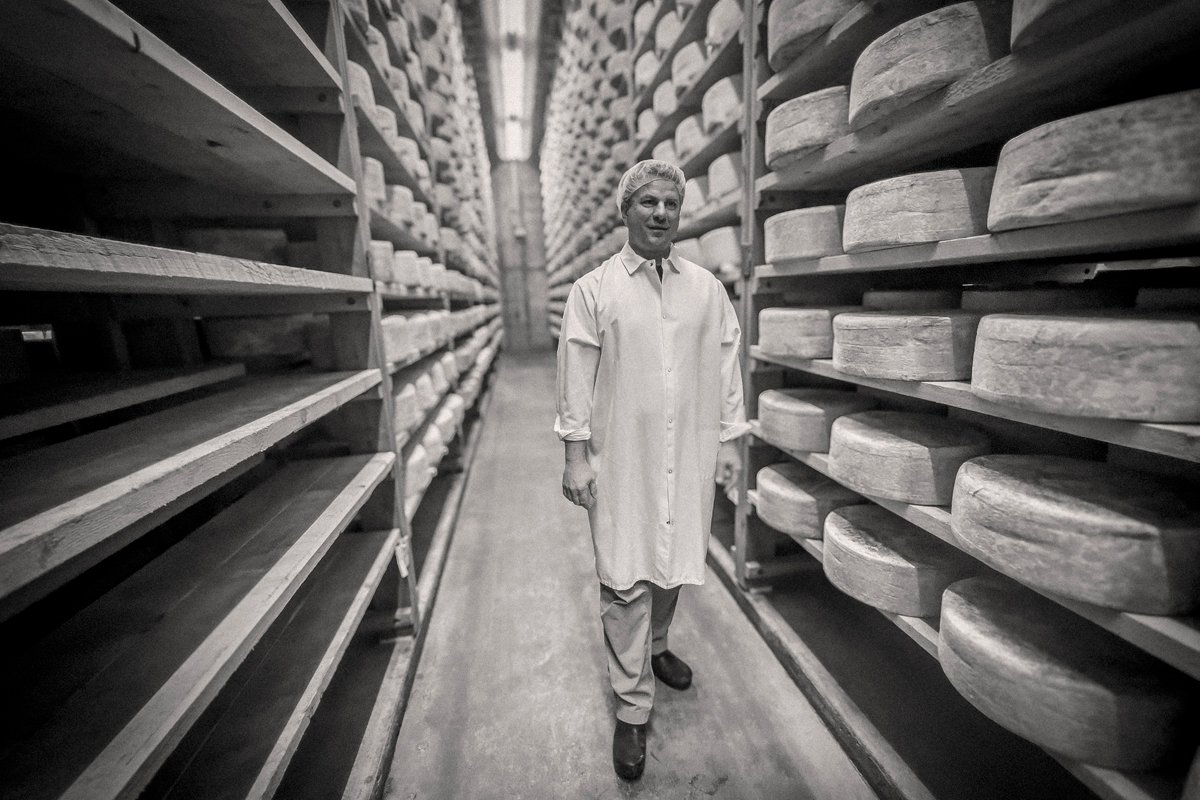As the meat industry continues to consolidate, groups representing ranchers and farmers ask when policymakers will stand up and level the playing field.

As the meat industry continues to consolidate, groups representing ranchers and farmers ask when policymakers will stand up and level the playing field.
January 17, 2020

For decades, farmers have been engaged in an epic battle of David vs. Goliath, farmer vs. meatpacker. Just a handful of companies—including Tyson, JBS, and Cargill—control over 80 percent of the meat market. These companies set the price farmers and ranchers receive for their animals, and often work together to ensure that they stay low.
During President Obama’s first campaign, he promised extensive reforms to the meat industry that would have substantially improved the lives of farmers and ranchers by enforcing a 1921 law that prohibits price discrimination by meatpackers against small and mid-size farmers (in other words, it would have provided farmers more power to negotiate).
While then-candidate Obama was traveling across America seeking the Democratic nomination, Congress was passing the 2008 Farm Bill, which included a mandate to advance regulations covering dealings between meatpackers and farmers. It took the Obama administration nearly eight years to agree on a plan, but they released a watered-down version of those regulations right as the president was terming out—and that version was killed shortly after Trump took office.
Now, a fresh batch of candidates are promising reforms to the meat industry. Senator Elizabeth Warren has promised to “attack consolidation in the agriculture sector head on,” while Senator Bernie Sanders has promised to “strengthen antitrust laws that defend farmers from the corporate middlemen that stand between the food grower and the consumer.”
Meanwhile, the Grain Inspection, Packers and Stockyards Administration (GIPSA)—the agency tasked with enforcing these regulations—has been split and reorganized under another department, and farmers still lack the promised regulations protecting them from unfair or deceptive industry practices. Multiple Congresses and administrations have failed in their mandate to provide clear and enforced protections for farmers, while the industry has established unfair, deceptive, retaliatory, and predatory practices as the norm.
Continuing this long-running saga, on January 10, the U.S. Department of Agriculture (USDA) released a new version of rules intended to satisfy the “undue preference” section of that 2008 Farm Bill mandate. In this proposed undue preference rule, the agency’s Agriculture Marketing Service (AMS)—the division that now oversees the enforcement of the Packers & Stockyards division—lays out four criteria that the Secretary of Agriculture will use in determining whether the agency has provided “excessively favorable conditions for one or more persons, reducing opportunities for optimal pricing and business success for competitors.”
When deciding who to work with and how, the rule allows the meatpacking companies to consider whether doing so “provides cost savings related to dealing with different producers, sellers, or growers,” “meets a competitor’s prices,” “meets another term offered by a competitor,” or “can be justified as a reasonable business decision that would be customary in the industry.” It also says that the AMS can “take other factors into consideration as appropriate on a case-by-case basis.”
This final criterion undercuts the entire premise of this rule and illustrates why it has little hope of protecting farmers from industry abuse. Undue and unreasonable preference is not just “customary” within the current contract poultry industry, it’s essential. And, rather than protecting farmers from well-documented abuse, this rule codifies it.
While farmers have waited for action, decrying industry practices that are unfair, deceptive, and exploitative (and showing up in Washington to testify to their experiences), the industry has established these practices as customary. In 2010, USDA and the Department of Justice (DOJ) held a series of joint public workshops on issues of agriculture, antitrust enforcement, and regulation in the industry. More than 40 poultry farmers and advocates gathered to discuss issues they have experienced or witnessed in the industry.
They told stories of high debt, manipulation of inputs to favor some farmers over others, variable income due to the tournament pay system—which redistributes income from the lowest-performing farms to the top-performing ones—retaliation for speaking out, and more. Earlier this year, a ProPublica investigation revealed how Koch Foods’ discriminatory practices sent Black farmers in Mississippi into bankruptcy over the last decade.
But this pattern isn’t new. As early as 1961, farmers were testifying before Congress about the abuse they suffered at the hands of the meat industry. Poultry farmer Charles R. Moultries testified that “if the grower disagrees or objects to their demands, they refuse to deal with him, leaving him with a large debt for buildings and equipment…We are a depressed people.”
In 1990, a group of contract farmers formed the National Contract Poultry Farmers Association. Farmer Mary Clouse, who is also the founder of RAFI-USA’s Contract Agriculture Reform Program, gave an interview in 2002 to the USDA’s Rural Cooperatives Magazine, saying, “the poultry processors control all the inputs, tell them how to grow birds, decide when to take birds, and when to bring feed. The company decides whether to continue to use your facility…” Clouse also recounted stories of poultry farmers committing suicide due to dire economic situations caused by their contracting company. Farmer Kay Doby told similar stories of farmer suicides while sitting next to then Secretary of Agriculture Tom Vilsack, during the 2010 USDA/DOJ workshops.
A wide range of media outlets have covered these issues since the 2010 workshops, including John Oliver, who covered the issue on his high-profile HBO news show, Last Week Tonight, in 2015. Despite extensive coverage, many farmers risking everything to speak the truth, and decades of first-hand testimony to multiple Congresses and administrations, those with the ability to help these desperate farmers continue to side with the industry. This most recent iteration of the undue preference rule is not the first time officials have let these farmers down, but it very well may be the worst instance to date.
Not only does this rule provide no specific guidance on evaluating issues of racial bias, company retaliation, or the tournament system—all important factors that would need to be included in a rule with teeth—it also sanctions the continuance of these abusive practices as they are already “customary” within the industry.
After nearly 60 years of testimonies, dozens of trips to D.C., countless heartbreaking stories, a new farm crisis, and increasing media coverage, we have to keep asking: When will someone stand up and level the playing field for farmers?

September 4, 2024
By paying top dollar for milk and sourcing within 15 miles of its creamery, Jasper Hill supports an entire community.
September 3, 2024

August 27, 2024

August 26, 2024

Will this happen? Nope.